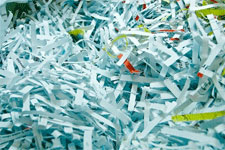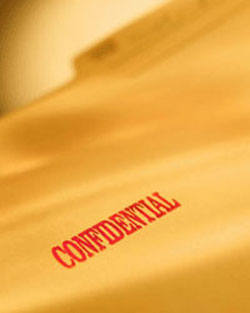HIPAA (Confidential) Document Destruction
The Health Insurance Portability and Accountability Act of 1996 (HIPAA) requires all healthcare facilities to manage the privacy of patient (past and present) information. Thus, document destruction is an important topic in healthcare. What types of information falls under HIPAA? The following definitions and information are taken directly from the U.S. Department of Health and Human Services page entitled Summary of the HIPAA Privacy Rule.
Protected Health Information (PHI)
The Privacy Rule protects all individually identifiable health information held or transmitted by a covered entity or its business associate, in any form or media, whether electronic, paper, or oral. The Privacy Rule calls this information protected health information (PHI).
Individually identifiable health information, including demographic data, relates to:
- the individual’s past, present or future physical or mental health or condition,
- the provision of health care to the individual, or
- the past, present, or future payment for the provision of health care to the individual,
- and that identifies the individual or for which there is a reasonable basis to believe it can be used to identify the individual. Individually identifiable health information includes many common identifiers (e.g., name, address, birth date, Social Security number).

For more information on how to destroy and dispose of electronic records correctly, please visit the healthcare universal waste section of our website.